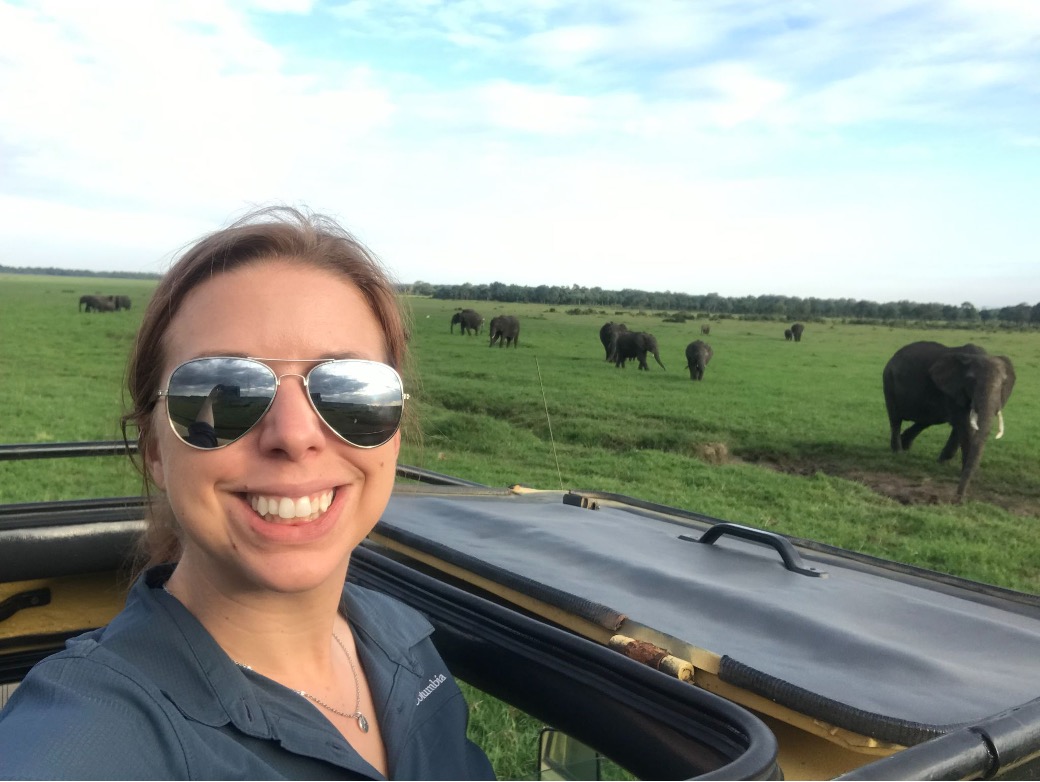

Global Field Program
The Global Field Program (GFP) is a master’s degree program that brings scientists, educators, community leaders, and others together at critical conservation hotspots in Africa, Asia, Australia, and the Americas to explore new solutions for a sustainable planet. GFP students learn to work effectively across diverse ecological and social settings as they foster change through community-engaged education, scientific inquiry, environmental stewardship, and global understanding.
Program Overview
The Global Field Program (GFP) is a part-time master’s degree offered by Miami University. GFP master's students join an expansive network of leaders who work collaboratively to bring about change in local and global contexts. The GFP builds on the graduate courses and environmental partnerships of Earth Expeditions (see the Earth Expeditions website for descriptions of the global field course sites).
Miami’s GFP is well suited for students with interests in environmental biology, conservation, sustainability, environmental education, participatory learning, community-engagement, environmental justice, as well as a wide range specializations such as ethnozoology, traditional ecological knowledge, island biogeography, animal welfare, nonprofit leadership, marine biology, conservation art and media, youth programs, and more.
Because the GFP combines summer field courses worldwide with online learning communities, this master’s degree can be completed part-time from anywhere.


Earth Expeditions Locations

FAQs
GFP at a Glance
35
Graduate Credit Hours Including Three Once-in-a-Lifetime Field Experiences in Biodiversity Hotspots Across the World
2.5
Years to Complete Your M.A. or M.A.T. While Working
92%
of Alumni Feel the Program Met or Exceeded Expectations
58%
of Graduates Report Having Received a Pay Increase or Promotion Due to the Program
Explore Earth Expeditions: Learning in the World Community
Amazon: Avian & Tropical Ecology
Journey to the Amazon and learn how communities are working to save this astonishing and irreplaceable ecosystem.

What kind of support and experience can this program provide?
Applications and Eligibility
Applications are accepted from early September through January 15th (for the GFP) or February 15th (for the AIP) of each year for enrollment beginning late spring. No GRE is required.
Project Dragonfly master's programs are open to a broad range of individuals:
- Recent college graduates;
- Graduates who haven’t been to school in years;
- Professionals working in non-profit education, business, and government settings;
- Anyone who holds a bachelor’s degree, regardless of major, and has an interest in improving human and ecological communities
Enrollment Information
The AIP and GFP master’s can be completed part-time while working. Miami offers significantly reduced tuition for this program.
Participants need to fulfill the minimum Graduate School GPA requirements for admission to the program. For more information, please visit the Graduate School’s Admissions Information.
Biology Course Requirement
All Dragonfly graduate students are required to have completed (receiving a final grade of B- or better) one university-level general biology course or its equivalent before completion of their degree. Students admitted to the program who have not previously met this requirement through their undergraduate studies need to complete such a course before they graduate. More information may be found in the Biology Requirement FAQs and on the Biology through Inquiry webpage.
Transfer Credits
Only the following credits are transferable into the AIP or GFP:
- Up to 7 credits from a past Earth Expeditions field course (with an earned grade of B or higher) may be applied.
- Up to 7 credits from past AIP W+ courses taken through Miami University may be applied.
Note: No other credits can be transferred into the AIP or GFP. No exceptions can be made to the transfer credit policy.
Which Master’s Degree Is for Me?
Not sure? That's okay — you can change your target degree and major once admitted to the program.
The Master of Arts in Biology (M.A.)
This degree option is for any applicant with a bachelor’s degree interested in advancing their career through global leadership, community engagement, life sciences, and environmental stewardship.
The Master of Arts in Teaching in the Biological Sciences (M.A.T.)
Designed for certified teachers, this degree provides real-world experiences that advance district, state, and national educational standards through research-based practices for student achievement in core content areas. This degree is not intended to lead to educator certification.
Featured Video*
Is This For Me?
Here are some of our most Frequently Asked Questions.
What's new with Project Dragonfly?

Graduate’s travel narratives and wildlife photography adorn front covers and pages of two international journals
As a student in Miami's biology department, Bryan Kao ‘24 earned a Master of Arts (M.A.) in Biology through Project Dragonfly's Advanced Inquiry Program (AIP) while working as a vis...

Meet the 2025 Project Dragonfly Alumni Leaders
These alumni leaders were chosen to help motivate, engage, and lead learning for current Project Dragonfly students in the 2024-25 academic year.

Project Dragonfly has won the MAGS 2025 Excellence in Innovation in Graduate Education Award
OXFORD, Ohio – Miami University’s Project Dragonfly has won the Midwestern Association of Graduate Schools (MAGS) 2025 Excellence in Innovation in Graduate Education Award.

GFP graduate, Stephanie Hull, named Fulbright semifinalist
Global Field Program (GFP) graduate Stephanie Hull ‘24 was named a Fulbright U.S. Student Program semifinalist for 2025-2026.















